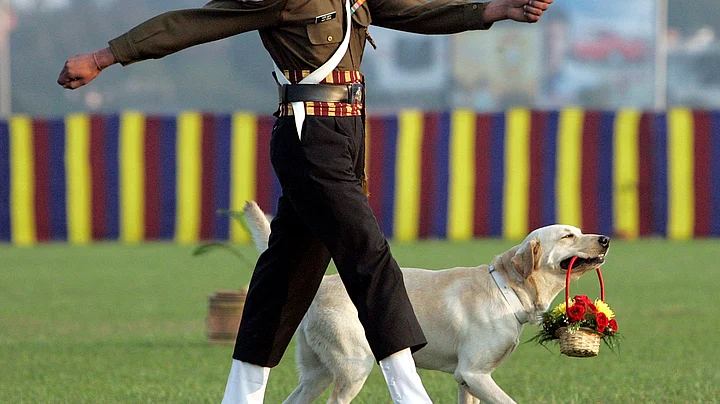In 2000, a US handler wanted to adopt his dog, Robby after the canine’s retirement from military service. His request was not acceded to, and Robby was later euthanised. But the dog’s death was not in vain, and Robby’s Law eventually made way for the adoption of retiring military dogs.
In India, there is no such law. In fact, the canines of the Indian Army that are considered unfit to perform their duties are disposed of by “humane euthanasia”, as per an RTI query reported by The Times of India (TOI).
The head of India’s main animal welfare board, an ex-Army man himself, is now questioning this policy. Dr R M Kharb, a retired army Major General, who is the Chairman of the Animal Welfare Board of India is urging the Defence Ministry to take a call on the euthanasia of military dogs.
The euthanasia of military dogs has been going on since the time of the British, but the regulation has not been revised over time.
– Dr R M Kharb, Animal Welfare Board of India
But why not put these dogs up for adoption?
According to the TOI report, the army considers adoption a security matter for two reasons. One, the fear that these highly-trained dogs who are familiar with base locations will land in the wrong hands, and two, that animal welfare organisations won’t be able to provide them with the kinds of facilities the Indian Army provides.
Euthanasia Only as Last Resort?
Not all military dogs can be put up for adoption, concedes Dr. R.M. Kharba. The doctor says that for military dogs suffering from deformities or eyesight issues, being put to sleep may be the only option.
In the UK too, dogs with military service behind them are put up for adoption. Between 2009-2013, 318 canines found new homes, even though 288 military dogs were euthanised for ‘health and old age’ reasons.
Army Can Take Police’s Lead
In Kolkata, roughly 90% of all retired or ailing canines in the police are adopted by their trainers. The police also assists retired or current officers to adopt the dogs, else they are handed over to animal rights organisations. Background checks of all applicants are carried out to find out whether they are animal friendly or not.
Jayaprakash Satyamurthy, who runs Animal Aid Alliance in Bangalore, says that police dogs even in Karnataka are given up for adoption after completing police service. He says the army’s reasoning that civilians will not be able to provide for these dogs is “hogwash”.
If the army can afford to recruit and train dogs, then it should certainly make provisions for their sunset years. Euthanasia should be administered when there is no prognosis for recovery, and not used as a convenient means of disposing off someone you no longer need.
– Jayaprakash Satyamurthy, Animal Aid Alliance
The animal rights activist believes that the following steps should be taken up immediately.
1. Build public opinion against the military’s policy of euthanising dogs.
2. Set up army-run animal retirement centres in the East, West, North and South regions.
3. Rehabilitate retired dogs with the help of animal welfare organisations and the public.
